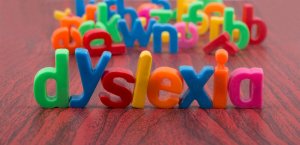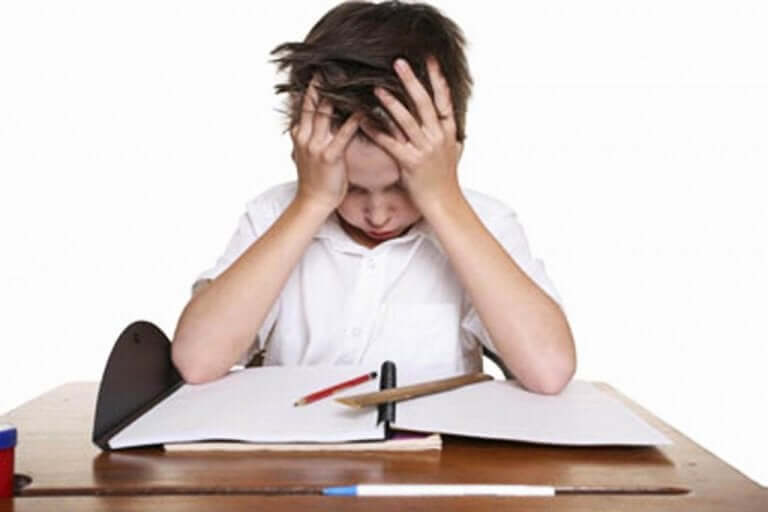4 Ways to Help Children with Dyslexia

For many families, having a child with learning difficulties causes a lot of stress and concern about the child’s academic future. That’s why we’ve put together this article on how to help children with dyslexia.
Dyslexia is diagnosed when a child has problems with lexical processing, i.e., reading words, and performing significantly below expectations for his or her age.
Should the school help children with dyslexia?
The school has a duty to help children with dyslexia and provide an appropriate response to their needs. Their learning difficulties can create the risk of failure at school.
Inclusive measures minimize differences in learning opportunities and promote equality. They should therefore feel fulfilled in carrying out their tasks and have a sense of belonging in the classroom.

In this way, you can avoid the feeling of frustration and low self-esteem that comes from not reaching the same level of academic ability as their peers.
In addition, teachers should try to make the interaction with parents pleasant and cordial. They should show the commitment that the school has towards their dyslexic child. But, from home, the family must also be aware and help the child in every way possible.
4 ways to help children with dyslexia
Having the correct information about dyslexia
The first thing parents should do when they’re told that their child has dyslexia is to become thoroughly informed about the subject. This is the only way to understand the child and to be able to help them.
To do this, they should seek out and contact one of the several services, outside of the school, that the community offers, and that could serve as a complement to school activities. These include:
- Playrooms
- Organizations
- Parents’ associations
It can also be beneficial for the family, as they’ll get to know more people who are in the same situation. In addition, there are many pages on the Internet, and many books, that aim to provide families with observation and intervention strategies for dyslexia.
“The more information you gather about dyslexia, the better you will understand your child’s difficulties.”
Going to see an expert
In many cases, it’s advisable for the child to go to a service outside of the school, such as a psychology or speech therapy clinic. There, they can give them a more personalized and individualized attention that complements the involvement of the school.
Thus, following the advice of professionals inside or outside the school, the family should be in charge of providing help to their child at home. In that way, they’ll be able to stimulate the child to take an interest in reading. This will vary from child to child, and depend on the skills and difficulties each individual child has. You can use fun activities such as the following:
- Educational games for the tablet
- Word searches, crossword puzzles, etc.
- Interactive books
- Boards with magnetic letters
Keeping in touch with the school
As soon as your child is diagnosed with dyslexia, the school must request the relevant support in order to help your child. This will include teachers specializing in therapeutic pedagogy, hearing, and language. They’ll begin to work with your child using psycho-educational techniques, so that your child can improve the areas that they’re having difficulties in.
In this sense, the family must collaborate with the school and make sure they’re applying the necessary measures in order to respond to the child’s educational needs. Parents should, therefore, be in frequent contact with the school through calls, meetings, and notes to the teachers.
Encourage reading at home to help your child with dyslexia
It’s important to show a proactive attitude towards reading at home and to encourage your child to devote a few hours each day to this task. This should be carried out in every home, but it’s even more relevant if you have a child with dyslexia.
Reading is a basic life skill that everyone needs. So, you need to ensure that your child achieves a good level in this area of learning. This will help to prevent it from impacting them in a negative way when they’re an adult.

“Reading increases, multiplies, broadens, thickens, enriches, elevates, enlarges and amplifies your vocabulary.”
– Anonymous –
In conclusion
Having a child with dyslexia has practical implications and repercussions for the child regarding their:
- Families
- Teachers
- Professionals outside of the school
All of them must work together in unison to try to alleviate the issues that these children encounter during their time in the educational system.
“We are all geniuses. But if you judge a fish by its ability to climb a tree, it will live its whole life believing it is stupid.”
– Albert Einstein –
For many families, having a child with learning difficulties causes a lot of stress and concern about the child’s academic future. That’s why we’ve put together this article on how to help children with dyslexia.
Dyslexia is diagnosed when a child has problems with lexical processing, i.e., reading words, and performing significantly below expectations for his or her age.
Should the school help children with dyslexia?
The school has a duty to help children with dyslexia and provide an appropriate response to their needs. Their learning difficulties can create the risk of failure at school.
Inclusive measures minimize differences in learning opportunities and promote equality. They should therefore feel fulfilled in carrying out their tasks and have a sense of belonging in the classroom.

In this way, you can avoid the feeling of frustration and low self-esteem that comes from not reaching the same level of academic ability as their peers.
In addition, teachers should try to make the interaction with parents pleasant and cordial. They should show the commitment that the school has towards their dyslexic child. But, from home, the family must also be aware and help the child in every way possible.
4 ways to help children with dyslexia
Having the correct information about dyslexia
The first thing parents should do when they’re told that their child has dyslexia is to become thoroughly informed about the subject. This is the only way to understand the child and to be able to help them.
To do this, they should seek out and contact one of the several services, outside of the school, that the community offers, and that could serve as a complement to school activities. These include:
- Playrooms
- Organizations
- Parents’ associations
It can also be beneficial for the family, as they’ll get to know more people who are in the same situation. In addition, there are many pages on the Internet, and many books, that aim to provide families with observation and intervention strategies for dyslexia.
“The more information you gather about dyslexia, the better you will understand your child’s difficulties.”
Going to see an expert
In many cases, it’s advisable for the child to go to a service outside of the school, such as a psychology or speech therapy clinic. There, they can give them a more personalized and individualized attention that complements the involvement of the school.
Thus, following the advice of professionals inside or outside the school, the family should be in charge of providing help to their child at home. In that way, they’ll be able to stimulate the child to take an interest in reading. This will vary from child to child, and depend on the skills and difficulties each individual child has. You can use fun activities such as the following:
- Educational games for the tablet
- Word searches, crossword puzzles, etc.
- Interactive books
- Boards with magnetic letters
Keeping in touch with the school
As soon as your child is diagnosed with dyslexia, the school must request the relevant support in order to help your child. This will include teachers specializing in therapeutic pedagogy, hearing, and language. They’ll begin to work with your child using psycho-educational techniques, so that your child can improve the areas that they’re having difficulties in.
In this sense, the family must collaborate with the school and make sure they’re applying the necessary measures in order to respond to the child’s educational needs. Parents should, therefore, be in frequent contact with the school through calls, meetings, and notes to the teachers.
Encourage reading at home to help your child with dyslexia
It’s important to show a proactive attitude towards reading at home and to encourage your child to devote a few hours each day to this task. This should be carried out in every home, but it’s even more relevant if you have a child with dyslexia.
Reading is a basic life skill that everyone needs. So, you need to ensure that your child achieves a good level in this area of learning. This will help to prevent it from impacting them in a negative way when they’re an adult.

“Reading increases, multiplies, broadens, thickens, enriches, elevates, enlarges and amplifies your vocabulary.”
– Anonymous –
In conclusion
Having a child with dyslexia has practical implications and repercussions for the child regarding their:
- Families
- Teachers
- Professionals outside of the school
All of them must work together in unison to try to alleviate the issues that these children encounter during their time in the educational system.
“We are all geniuses. But if you judge a fish by its ability to climb a tree, it will live its whole life believing it is stupid.”
– Albert Einstein –
All cited sources were thoroughly reviewed by our team to ensure their quality, reliability, currency, and validity. The bibliography of this article was considered reliable and of academic or scientific accuracy.
- American Psychiatric Association. (2013). Manual diagnóstico y estadístico de los trastornos mentales-DSM 5. Barcelona: Editorial Médica Panamericana.
- Asociación Dislexia y Familia. (s.f.). Disfam: Estrategias para alumnos con dislexia. Recuperado de: http://www.fapamallorca.org/descargas/677ffc491ce8ee3f25ad5b6abfcfc68do.pdf
- Paniagua, G. (2012). Las familias de niños con necesidades educativas especiales. En Á. Marchesi, J. P. González y C. Coll (Ed.), Desarrollo Psicológico Y Educación: 3. Transtornos Del Desarrollo Y Necesidades Educativas Especiales (pp. 469-489). Madrid: Alianza Editorial.
This text is provided for informational purposes only and does not replace consultation with a professional. If in doubt, consult your specialist.








